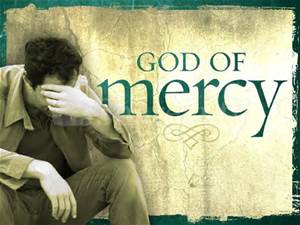Nearly all of us have heard the song Great is Thy Faithfulness. The hymn states, “Great is thy faithfulness. Great is thy faithfulness. Morning to morning new mercies I see. All I have needed thy hand hath provided. Great Is thy Faithfulness Lord unto me.” Unlike some other hymns, this hymn is not the result of some tragic event in Thomas Chisholm’s life but a powerful witness to his daily walk with Jesus as he experienced “morning by morning” new mercies from His Everlasting Father. Pastor Chisholm always trusted his Everlasting Father to take care of him, sustain him, and provide for his daily needs. Just before his death in 1960 he wrote this power, personal witness: “My income has never been large at any time due to impaired health in the earlier years which has followed me on until now. But I must not fail to record here the unfailing faithfulness of a covenant keeping God and that He has given me many wonderful displays of His providing care which have filled me with astonishing gratefulness.”[1] Chisholm’s hymn demonstrates not only the great faithfulness of God, but also the great mercy of God. Chisholm’s health would have failed him much earlier if it were not for the mercy of God. Chisholm realized that he was being sustained by the mercy of God.
We have spoken about the grace of God. Grace was defined as “giving someone something that they do not deserve.” Mercy is quite the opposite. Wayne Grudem defines mercy as “God’s goodness toward those in misery and distress.”[2] In other words, mercy is not giving someone something that they deserve. Some have asked whether mercy is an attribute or an activity. Norman Geisler has stated that “Regardless of whether mercy is itself an attribute or an activity of God, it is deeply rooted in His unchangeable nature. As such, it reveals something extremely important about God’s character.”[3]
1. The mercy of God has the quality of PATIENCE (14:18a).
Moses acknowledges in his prayer the patience of God as he says “the LORD is slow to anger.”[4] Moses had witnessed God’s great mercy in demonstrating patience in times past. Moses was asking for the same as the people had rebelled against the Lord. People were exclaiming, “We would have been better off in Egypt!”
It’s interesting to note the difference between the lack of patience from the people and the overwhelming patience of God. Remember, mercy means NOT giving someone something that they deserve. Did the people deserve a divine pop in the nose? Yes! However, God demonstrated mercy by his patience. What if God acted to us the way the people acted to God? Would they have been afforded the opportunity to enter the Promised Land? No!
2. The mercy of God has the quality of KINDNESS (14:18b).
Moses continues with his prayer noting that God has “abundant lovingkindness.” This phrase comes from two Hebrew words “rab” and “chesed.” The word rab means “mighty, “strong, or even “numerous.” Chesed means “lovingkindess” that has its root in one’s mercy. Thus, one could say that kindness is rooted in mercy. Moses was pleading for the kindness of God.
Let’s think this over. God had great mercy on the Hebrews keeping them from the plagues inflicted on the Egyptians. God had mercy on the Hebrews allowing them to cross through the Red Sea on dry ground. God had mercy on them by giving them manna from heaven. God had mercy on them leading them into the Promised Land. God had shown nothing but mercy to the Hebrews. Yet, still the Hebrews rebelled against God. Perhaps the problem was not so much with God’s mercy, but with the gratitude of God’s people.
3. The mercy of God has the quality of JUSTNESS (14:18d).
Moses was praying for God’s mercy. But, Moses also realized that there would be some who would not repent no matter how much grace was extended to them. As we learn earlier in the chapter, many were saying, “Why is the LORD bringing us into this land, to fall by the sword? Our wives and our little ones will become plunder; would it not be better for us to return to Egypt” (14:3)? What was the real sin? The writers of the New Bible Commentary note that “The Lord’s word begins with an accurate analysis of Israel’s sin—it is unbelief.”[5]
Three things can be said about the justness of mercy. 1) Isn’t it amazing that the people, who could not save themselves, thought that they knew better than the One who delivered them? Some people claim that God is unjust for sending people to hell, while at the same time accusing God for allowing evil to go unpunished. The same people will accuse God for not revealing himself to the world, while at the same time accuse God of foolishness for revealing himself on earth as Jesus of Nazareth. God’s mercy is extended, but his mercy does not force the obstinate and those who refuse to repent.
2) It was G. K. Chesterton who said, “Suppose we were puzzled to hear that some men said he was too tall and some too short; some objected to his fatness, some lamented his leanness; some thought him too dark, and some too fair. One explanation (as has been already admitted) would be that he might be an odd shape. But there is another explanation. He might be the right shape.”[6]
3) God is not unjust for sending unrepentant people to hell. God is merciful to allow anyone to go to heaven. It would be unjust of God to allow unrepentant people to enter into heaven.
4. The mercy of God has the quality of FORGIVENESS (14: 18c, 19).
Moses pleads with God to forgive the repentant. Moses played the part of a lawyer. Moses argued: “If the Lord wiped out the nation, it would reflect more on His character than on the character of rebellious Israel. His inability to fulfill His promise to bring this people into the promised land would negatively impact His reputation if He carried out His plan to destroy the nation. Moses, however, knew that the Lord could not let this rebellion go unpunished.”[7] Of course, God knew this all along. Thus, Moses pleaded for God to show mercy through his forgiving nature.
Mercy is at the heart of forgiveness. People really only hold two options when they are offended: they can hold grudges and seek revenge, or they can forgive giving the people over to God. But really, if we consider all for which God has forgiven us, it should be no big issue to forgive others. Jesus says quite bluntly, “If you do not forgive others, then your Father will not forgive your transgressions” (Matthew 6:15). When we hold on to bitterness, we really in the end only hurt ourselves anyhow.
A medieval story captures the manner in which bitterness holds us a prisoner. Long ago, two monks were traveling and approached an unusually rough river. Standing alone on the bank was a woman who approached the monks and asked if they could help her across so she could return home to her family. Knowing it was forbidden to touch a woman, one monk quickly looked the other way, ignoring her request for help. The other monk, feeling compassion for the desperate lady, decided to bend the rules. Breaking tradition, he lifted her into his arms and carried her safely across the rushing water. Exceedingly grateful, the lady thanked the helpful monk and left for home. The two monks continued on their journey. After miles of silence, the first monk finally said with disgust, “I can’t believe you picked up that woman! You know we’re never supposed to touch the opposite sex.” The compassionate monk replied, “I put her down miles ago, yet you still carry her in your heart.” God grants us mercy by his forgiveness. By God’s mercy, we are afforded the opportunity to forgive others as well.
Conclusion: A little boy named Johnny and his sister Sally stayed at their grandparents’ house for a week during the summer. Johnny had just received a brand new slingshot. However, Johnny wasn’t a good shot. His grandma called him in for supper. Frustrated, Johnny took a shot at his grandma’s pet duck. However, this time he hit the duck in the head and killed it dead. Johnny panicked. He took the duck’s corpse and hid it under a bush. His sister Sally had watched the whole thing. She said to him, “You’d better do what I say or I’ll tell Grandma.” So, the next day after lunch, Grandma said, “Sally, I need you to help with the dishes.” Sally said, “Johnny wants to do it.” Sally looked at Johnny and whispered, “Remember the duck.” Grandpa said to the children, “Let’s go fishing at the pond.” Grandma said, “I need Sally to help with supper.” Sally said, “Johnny wants to help.” She looked at Johnny and whispered, “Remember the duck.” After a few days of being Sally’s slave, doing chores, and obeying her every whim, he confessed to Grandma. Grandma said, “Honey, I was standing at the window when you accidently shot the duck. I forgave you then and there. I was just wondering how long you were going to be Sally’s slave.[8] The grace of God gives us heaven. But it is by the mercy of God that we are forgiven, transformed, and changed. If God has had mercy on you, remember you are a changed individual. Don’t be enslaved by the Devil’s reminders of your past. In life fashion, if you have received the mercy of God, demonstrate that same mercy unto others.
© April 29, 2016. Brian Chilton. Published May 5, 2016.
Notes
[1] Kenneth W. Osbeck, Amazing Grace: 366 Inspiring Hymn Stories for Daily Devotions (Grand Rapids: Kregel, 1990), 366
[2] Wayne Grudem, Systematic Theology: An Introduction to Biblical Doctrine (Grand Rapids: Zondervan, 1994), 200.
[3] Norman Geisler, Systematic Theology (Minneapolis: Bethany, 2011), 595.
[4] Unless otherwise noted, all quoted Scripture comes from the New American Standard Bible (La Habra, CA: Lockman Foundation, 1995).
[5] D. A. Carson, et. al., The New Bible Commentary (Liecester, UK: Universities and Colleges Christian Fellowship, 1994), Logos Bible Softward.
[6] G. K. Chesterton, Orthodoxy (New York: SnowBall Classics Publishing, 2015), 57
[7] Michael Rydelnik and Michael Vanlaningham, eds, The Moody Bible Commentary (Chicago: Moody Bible Publishers, 2014), 234.
[8] Adapted from the story given by Ellen Klinke, “The Duck and the Devil,” SermonIllustrationLibrary.org (May 3, 2006), retrieved April 29, 2016, http://www.sermonillustrationlibrary.org/illustration56.





